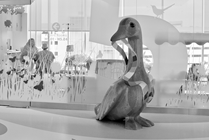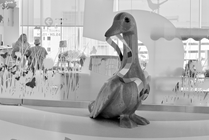Search Results
Viewing: 111-120 of 351 | All
Article
Catheterization - Self-Clean Intermittent - Male
Clean intermittent catheterization is done by passing a tube through the urethra into the bladder. Catheterization empties urine from the bladder.

Condition
Constipation: Infant
This Helping Hand™ covers constipation in infants less than one year of age. It is common, but it can be a concern for parents. Signs of constipation include infrequent stools that are difficult to pass and straining more than normal to have a bowel movement. Even if a baby is not constipated, bowel movements may be irregular.
Article
Cardiac Catheterization - Care at Home (Pediatric)
Your child has had a cardiac catheterization. Learn how to care for the cath site and when to call your cardiologist.
Article
Microarray Analysis Test
The microarray analysis test is used to find out if your child has a medical condition caused by a missing or extra piece of chromosome material. This test is also known by several other names, such as chromosomal microarray, whole genome microarray, array comparative genomic hybridization or SNP microarray.

Condition
Thrush and Yeast Infections
Thrush is an infection caused by a fungus called candida. Thrush can affect a child's mouth or diaper area. Oral thrush begins as flat white spots and come together to form patches. These spots are often mistaken for "milk patches." Candida in the diaper area can cause a red rash with tiny blisters.
Article
Echocardiogram With Sedation or Anesthesia
This Helping Hand™ is about why some children may need special medicine when getting an echocardiogram done. This test, also called an echo, is an ultrasound of the heart.
Hodgkin Lymphoma
Hodgkins Lymphoma (also known as Hodgkin’s Disease) is a form of cancer of the lymphatic system. The lymphatic system is a part of the circulatory system. It plays a main role in fighting infection. It is made up of hundreds of lymph nodes.
Hirschsprung Disease (HD)
In Hirschsprung disease, the nerves in the colon, also known as the large intestine or bowel, that move stool forward did not form. Hirschsprung disease can affect a small part of the colon or the entire colon. In rare situations, it can move into the small intestine, as well.

Condition
Tinea Versicolor
Tinea versicolor (TIN ee uh VUHR sih kuhl er) is a common rash caused by the overgrowth of microscopic yeast on the skin's surface. The rash looks like small, scaly spots.
Article
Colonoscopy with General Anesthesia: Infants and Toddlers
This Helping Hand™ is about how colonoscopies are done, how to prep for one, and what to expect for infants and toddlers.
